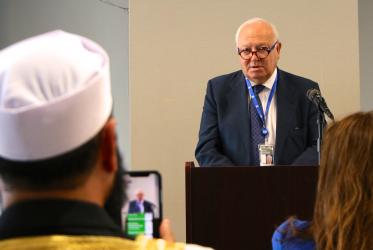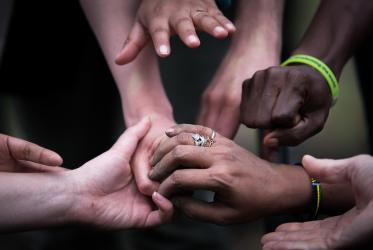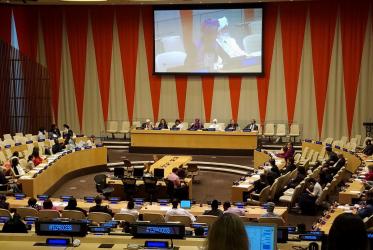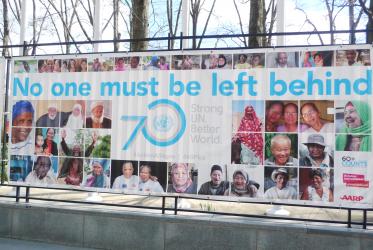Displaying 1 - 16 of 16
Worshipping safely: UN, faith communities unite to prevent violence
20 September 2019
Latest gun violence in US poses challenges for churches
05 August 2019
"Diversity" documentary reflects on maze of self-identity in Canada
27 September 2018
G20 summit: call to pray for peace in Hamburg
07 July 2017
Symposium focuses on religion, violence, extremism
04 February 2016
Indigenous faith leaders reflect on resilience and climate change
23 September 2014










